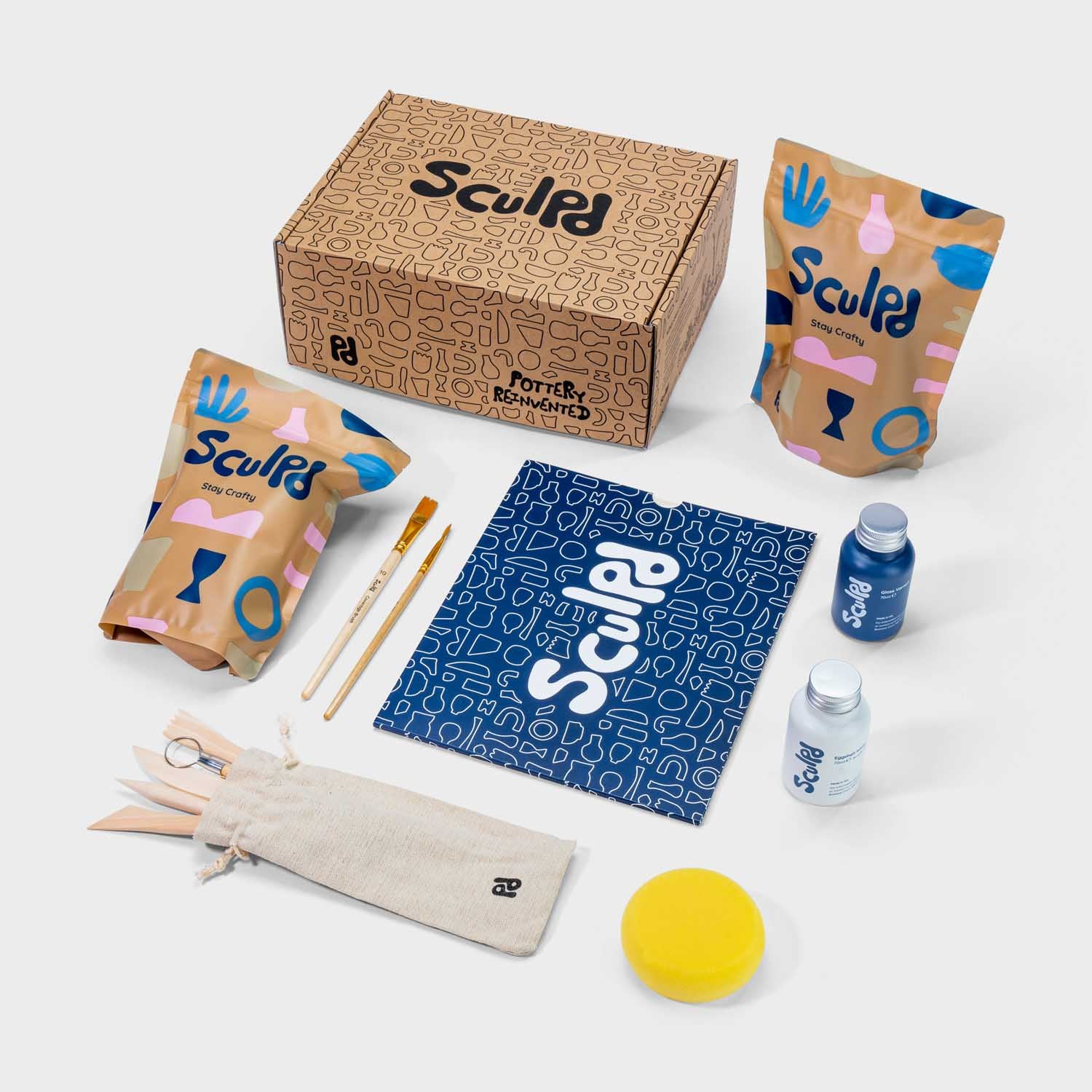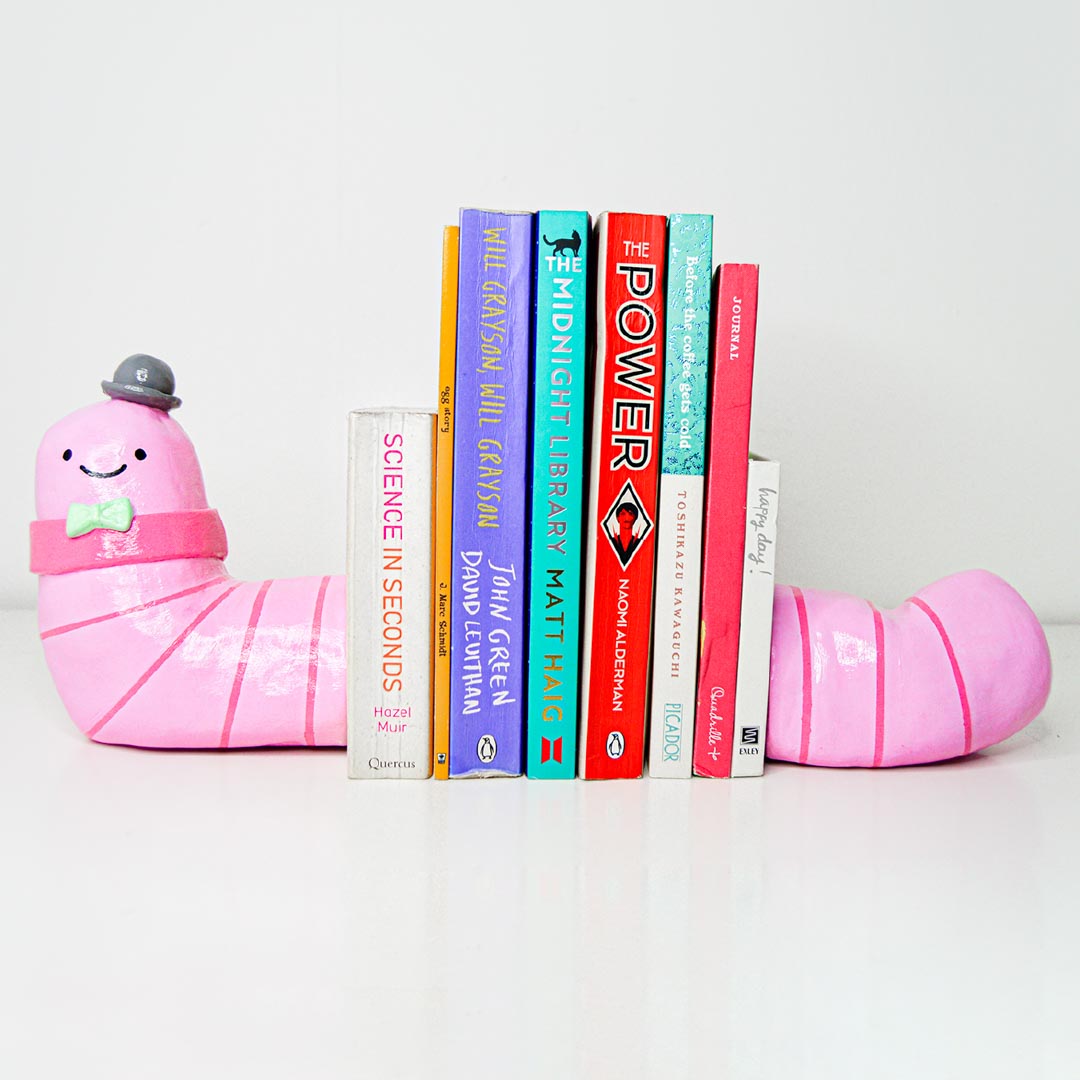Q&A WITH
Marcus Aitken & Emma Howell
Learn about our featured artists
We visited both of our featured abstract artists - Marcus and Emma - in their studio and gallery spaces to chat about inspiration, musical influences, working in their home studios, the importance of daylight...and knowing when to put the paintbrush down!

How did you become an artist?
I've always had a big fascination in art and being creative in various guises from a young age. These would include making sculptures and playing music which I still do now and actually impacts my gestural painting.
After university, I’ve had different career projects: from making jewellery, to installing art and working in a frozen yogurt shop. I then gradually got back into painting which felt the most freeing of all, so I’ve stuck with it.
Earlier in my career I worked as an art consultant, gallery manager and art technician - it’s very normal that artists have jobs on the side whilst they run their practise. Art is very up and down. It’s only in recent years I’ve been able to fully dedicate my time to my art practice.
Can you describe to us your daily routine?
- I treat my studio days like a 9-5. Typically I always need to have a plan I’ve made the night before of projects and paintings that I want to work on. I don’t often work on one thing at a time due to the drying time of paintings, so I’ll move between lots of different pieces during the day. I get my best work done just before lunch and typically don’t paint at night as I like as much natural daylight as possible.
I’ve also recently been working on a lot of collaborations which I've really enjoyed as it has allowed me to think about my practice in a broader sense. However, I always try to make time to create personal work which doesn’t necessarily have an end place - once the idea is in my head I have to get it out and onto canvas, its a very cathartic process.
How would you describe your abstract style?
Gestural, raw, emotional and intuitive. My work is generally based off a feeling or a tempo of the music I listened to at the time of painting.

Close up of an abstract canvas created for Sculpd, by Marcus Aitken
"Abstract art is limitless - people look at it in so many different ways. It will forever keep me entertained"
Tell us what your studio/painting space looks like!
I work in a converted loft in my house. It’s a great space because it has windows on both sides of the room so lots of natural lighting, and it’s quiet. The best thing about it is that it’s my space. If I leave it in a mess, I can return to it the next day which is important because as a painter, you’ll spend a lot of time mixing up paints. It’s nice to return to something exactly as you left it. You'll find all my paintings stacked to the sides of the room, a shelf full of pots of pre-mixed colours, and a large paint-splattered table which I move around a lot depending what I'm working on.
Marcus' studio in South London
What’s your most valuable source of inspiration?
Perhaps an obvious answer, but I love visiting galleries - mostly contemporary art. I of course draw inspiration from other abstract artists but often most of my ideas, forms, line work and colour arrangements come from figurative painters.
My work however, is not about a specific subject - more of a feeling. I also look inwards, because art is a reflection of your personality. For me, I’m an expressive quick-thinking person which translates well into abstract art.
Abstract art is limitless - people look at it in so many different ways. It will forever keep me entertained.

Abstract canvas created for Sculpd, by Marcus Aitken
What differentiates your successful pieces from your least favourite pieces in your mind?
- I think my most successful pieces are the ones that didn’t necessarily go to plan. The beauty of my work and why people like it is the raw gestural approach. You can immediately feel the freeness of movement and how it’s come together. If a piece is not so free and more pre-planned, you can sense this.
"If I’m in a silent studio environment it feels quite daunting to get into a new piece. It almost makes the blank canvas blanker"
Do you listen to music or any sounds whilst painting?
I always have music on to get me purely into the flow. If I’m in a silent studio environment it feels quite daunting to get into a new piece. It almost makes the blank canvas blanker.
I’m a real music-head so I have loads of playlists, there’s no specific genre - from classical, to mad post-punk, and alternative music.
Different genres influence the way I paint: slow classical music definitely gives different brushstrokes compared to something that has a fast tempo. I actually name a lot of my works after the tracks I was listening to at the time.

Boys Don't Cry, 50x40cm by Marcus Aitken
What are your top tips for someone new to painting?
Just make a mark on your canvas, even if it’s a pencil mark. Although it’s a small thing, it takes the pressure off because there’s already something there. A blank canvas can be a scary thing and it's still daunting for me still now.
Also create your environment, set up whatever your jam is - light a candle, put your music on etc.
Finally, don’t be afraid to make mistakes, sometimes these will be the most interesting details of the canvas.
Describe how you decide when a painting is complete
Always a hard thing to know...usually I’ll take a photo of a finished piece and go away to get space from the work. I’ll look later that evening and see it in a different context which is a really helpful tool. I also take lots of pictures whilst I work to also digitally draw on top and plan ideas.
As the years have gone on I’ve got better at making that decision, but it's hard because you can always add but not take away.

Marcus with his Sculpd abstract painting
You can see more of Marcus' work at:
Watch Marcus working on a piece from his home studio in South London:
Don't have a Sculpd Abstract Canvas Painting Kit yet?
What are you waiting for! Get yours here:

















